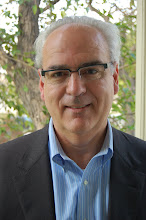Over 510,000 children are in foster care nationwide and of those children, about 81,000 are in California. In Los Angeles County, we have more than 37,000 children living in out-of-home placements. For years, Americans have said children are our most valuable resource, our future. Based on recent events that demonstrate the value in which we hold our children, the impact of America’s future is bleak.
A lawsuit was filed in the State of California, on behalf of foster children, because of the poor reimbursement given to foster parents to care for them. Children continue to be the largest segment of our population that lives in poverty. In addition, President George W. Bush vetoed a bill that would make health care available to all children living in America.
Foster parents have been under-funded. In particular, California’s reimbursement rates to foster parents are embarrassing and fall far short in providing the financial resources necessary to give foster parents the ability to provide adequately for our children’s needs. According to a recent report released by Children’s Rights, the National Foster Parent Association, and the University of Maryland School of Social Work, California’s current foster care rates must be increased by up to 61 percent in order to cover the real costs of providing care for children.
As the executive director of Hillsides, a Pasadena-based foster care children’s charity that provides care to children at risk and their families, I have seen families struggle to meet the financial obligations to care for their own children. What agencies are beginning to see now is a decrease in the number of foster parents willing to open their doors to children who have been abused, abandoned, and neglected.
Inadequate foster care rates negatively affect foster parent recruitment and retention, potentially increasing the likelihood that children will be placed in institutions or shuttled from one foster placement to another—and decreasing their chance of finding permanent homes. At Hillsides and in other similar residential treatment centers, we see the devastating affects that multiple foster care placements have on children.
As a society, we are challenged to solve children’s issues and make sound policy. Too often we talk about the problems, but never quite find positive solutions. Or the pen never makes it on the paper to sign sound legislation into law. Or policies are never put into practice. When will we begin to hold elected officials, government administrators, and government agencies responsible for bettering the future of America’s children?
Keeping silent perpetuates this cycle of political ping pong and furthers the abuse these children must endure. In one way or another, society’s silence fosters this atmosphere which greatly devalues our children. I see a society that has misplaced its priorities of caring for our children and is no longer a focus.
Most schools, particularly in the large urban areas, are under-funded and failing to provide educators with adequate tools to teach students. Teachers, caretakers, and childcare workers are poorly paid and not given the tools they need to be successful with their charges. We have not wanted to pay higher taxes to improve children’s situations. We have argued for years about the cost of universal healthcare without considering what the denial of such a program does to the children and families in need of it. We protect the gun lobbyists, while our children are shooting each other on the streets. We ignore the devastating affect of drugs and alcohol on children and families without making rehabilitative programs available to all that need it.
The fact remains that child protective services started in New York at the turn of the 20th century using Humane Society regulations designed to prevent cruelty to animals. Even today, kennels receive more money to board pets than foster families who care for children, according to reports citing the lawsuit filed in California. As a society, we have not come very far in the last one hundred years.
When will we say, “It’s time to consider what is in the best interest of all children living in America and let’s do what it takes to accomplish that?” As a society, we can put a stop to political ping pong. We can vote for Presidential and Congressional candidates who talk the talk and walk the walk when making policy that is in the best interest of American children. We can communicate to our elected officials and hold them responsible for placing children first. If we do this, we will begin to see hope in the future of our children.
Subscribe to:
Post Comments (Atom)



No comments:
Post a Comment